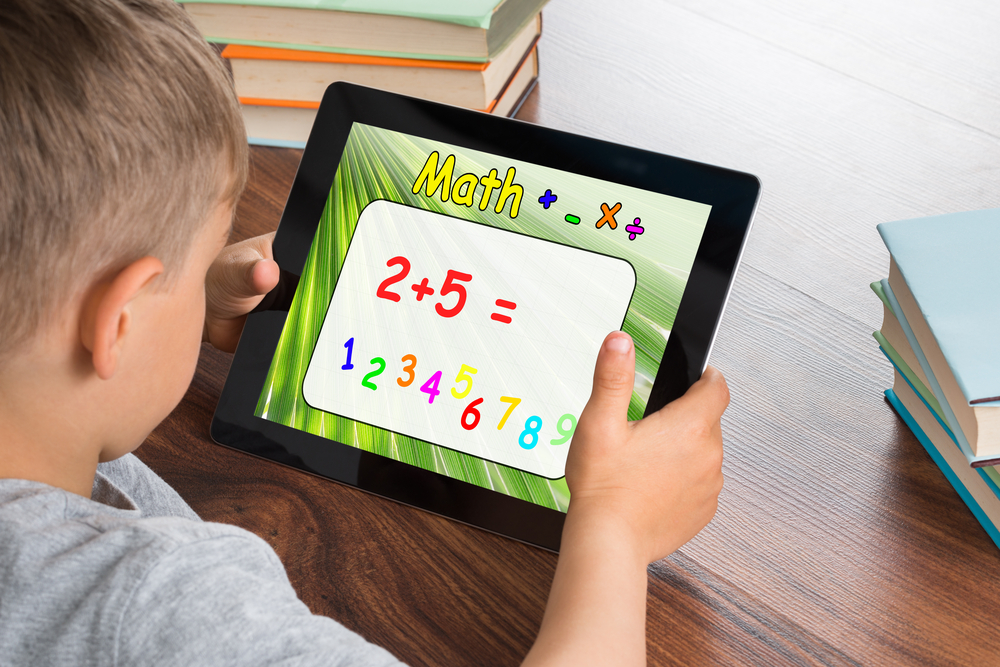Geometry worksheets activities for 6-Year-Olds
6 filtered results
-
From - To
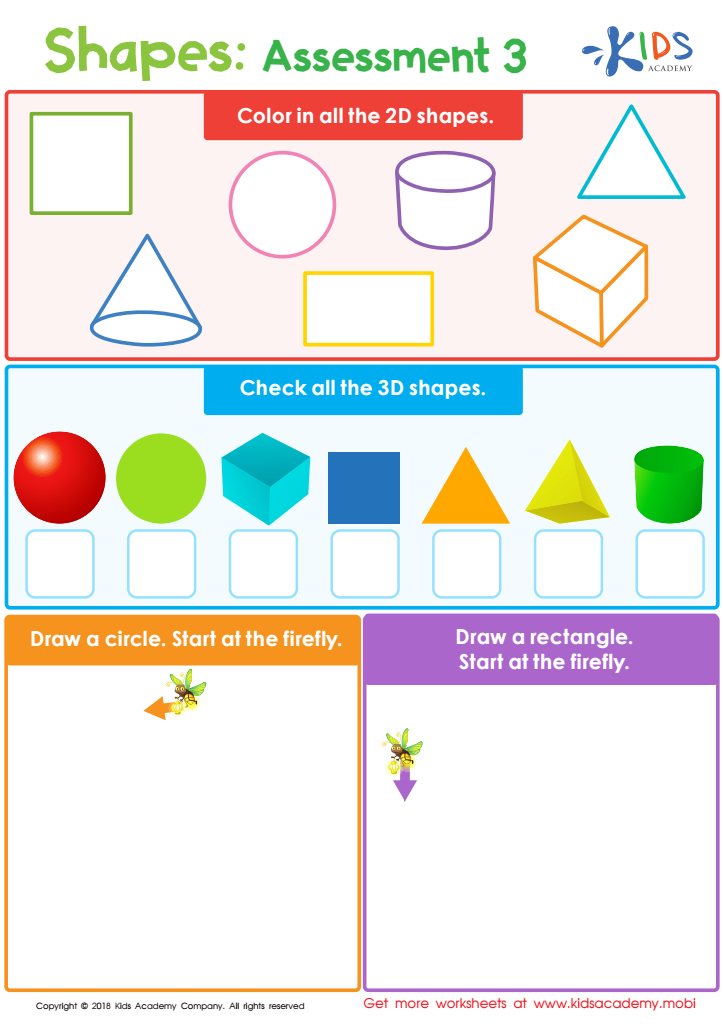

Shapes: Assessment 3 Worksheet
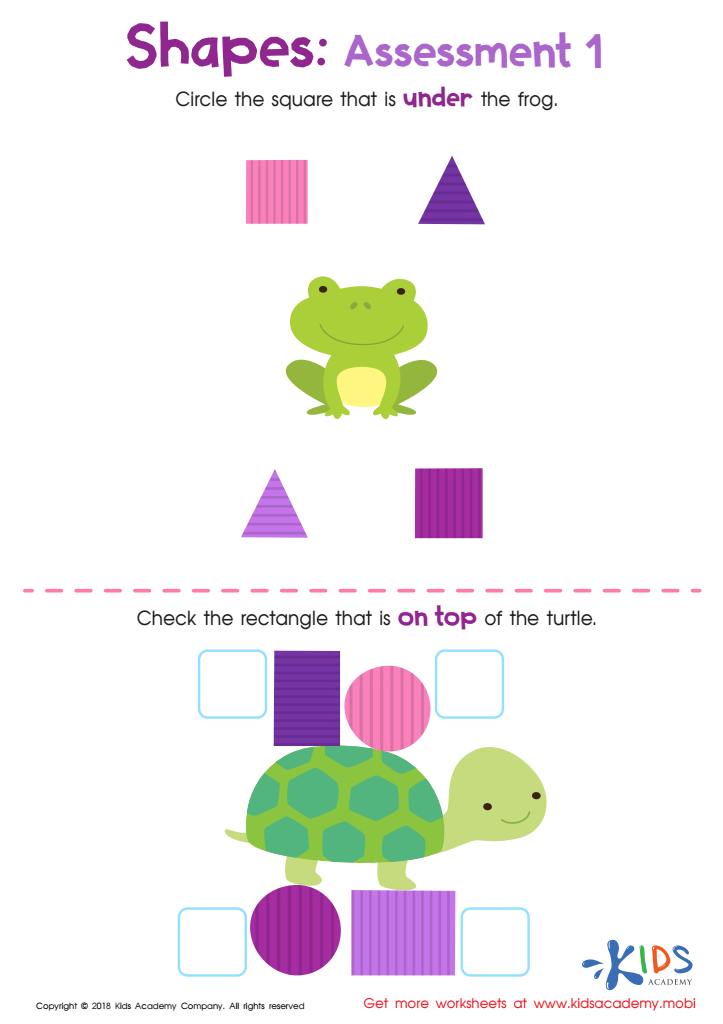

Geometry – Assessment 1 Worksheet
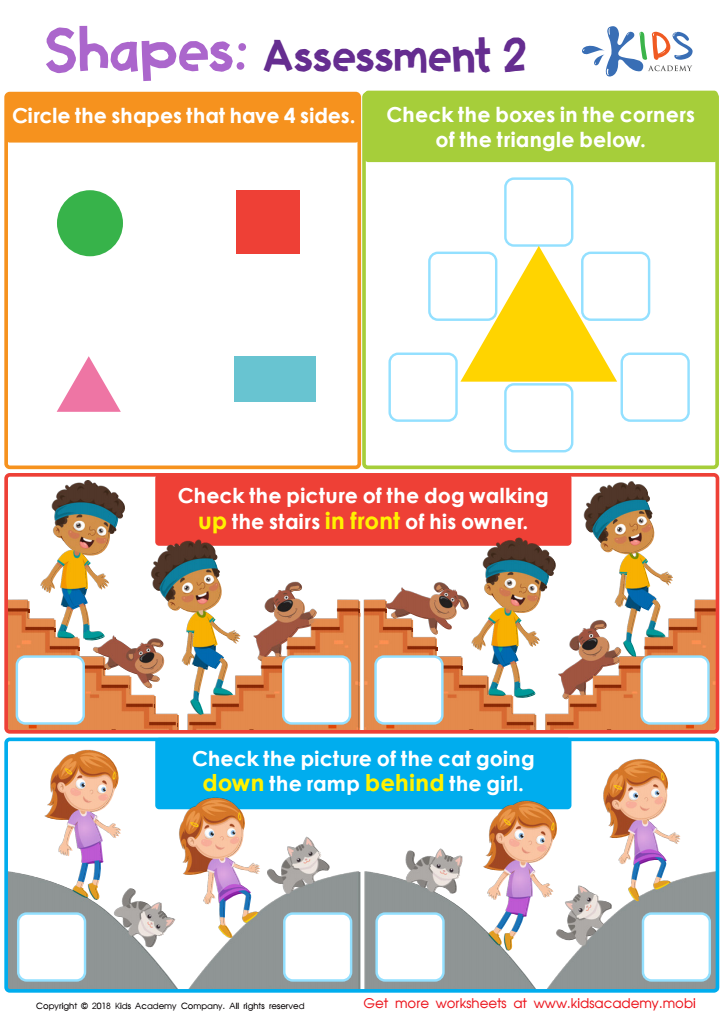

Shapes: Assessment 2 Worksheet
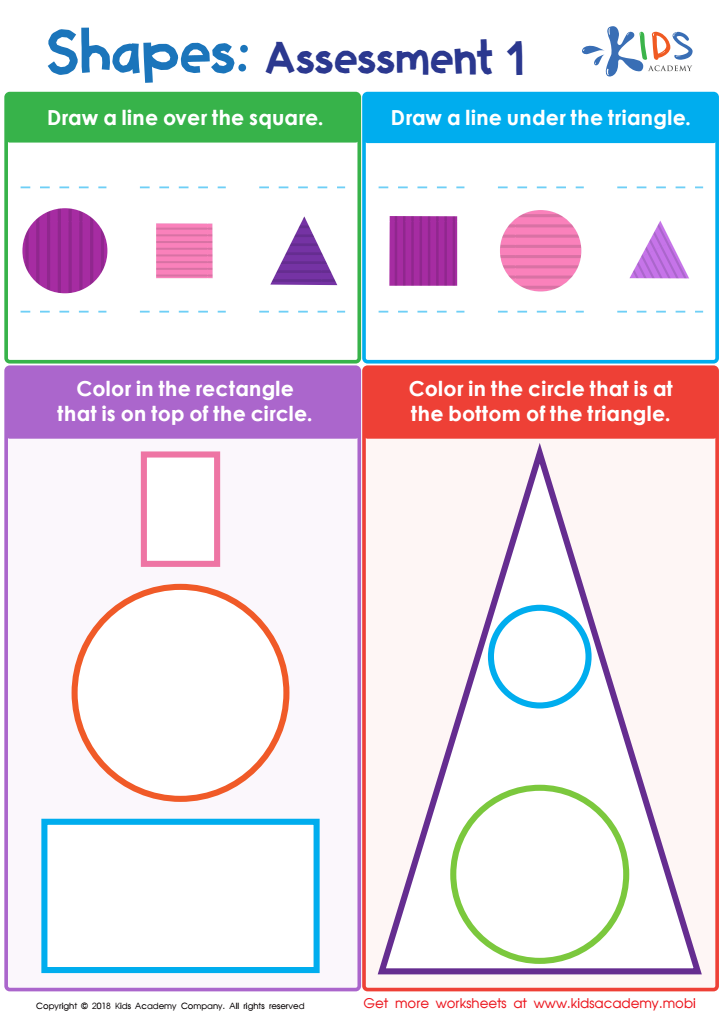

Shapes: Assessment 1 Worksheet
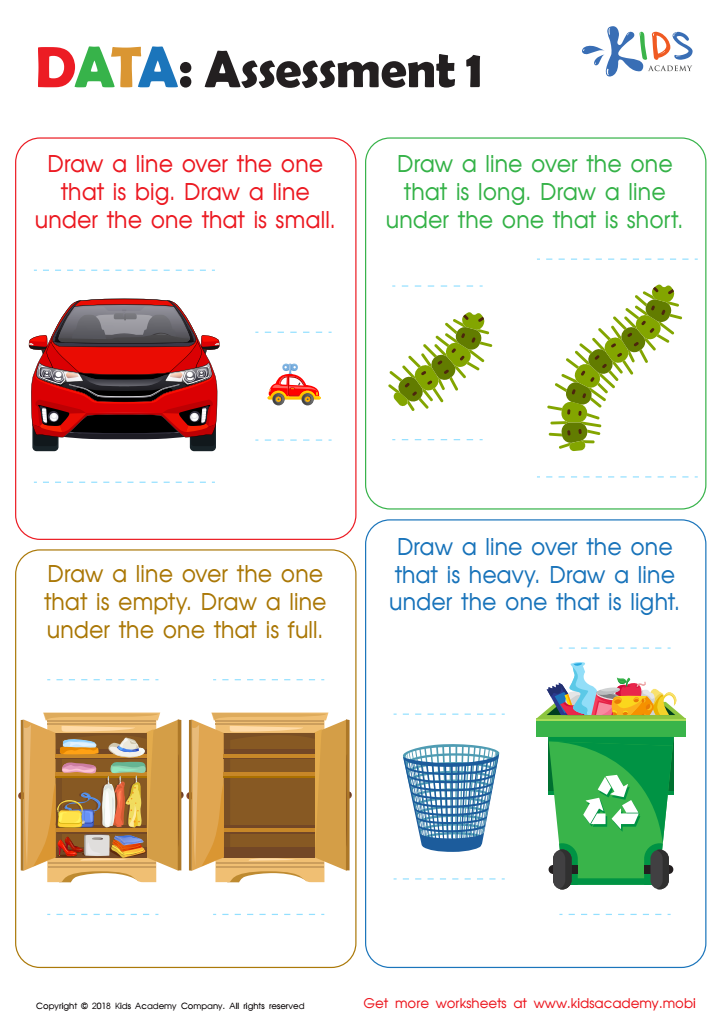

Data: Assessment 1 Worksheet
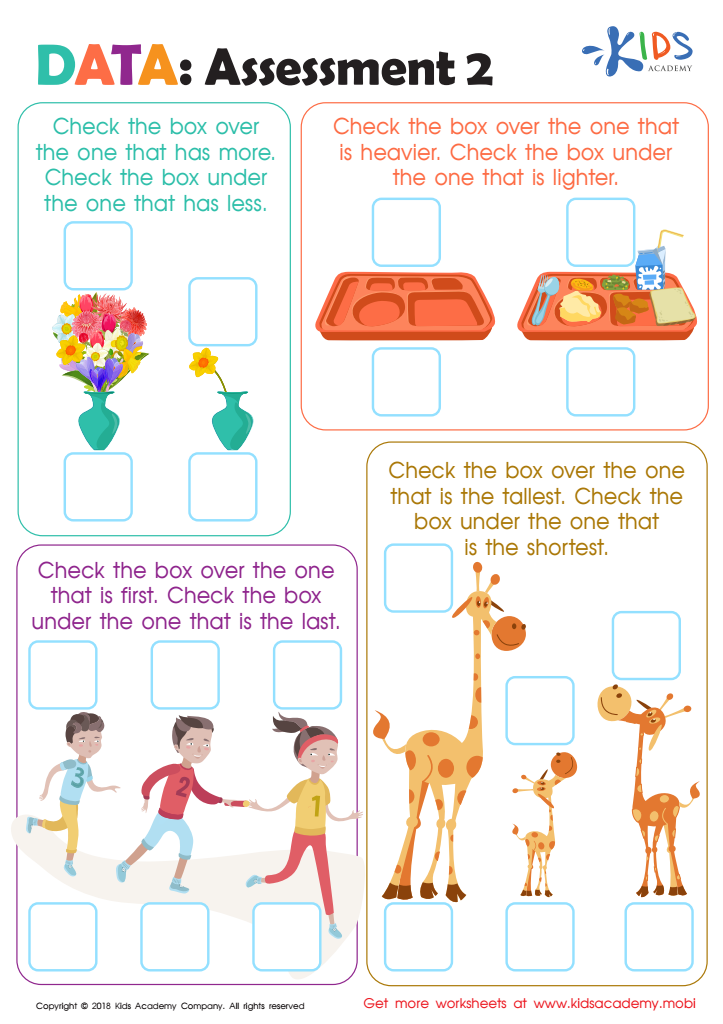

Data: Assessment 2 Worksheet
Geometry worksheets activities stand as an invaluable tool in the exploration and understanding of geometric concepts. These carefully designed exercises not only reinforce the theoretical aspects of geometry but also provide a hands-on experience that is crucial for developing a deep and lasting understanding of the subject. Here’s why geometry worksheets activities are so useful:
Interactive Learning: Unlike traditional lecture-based learning, geometry worksheets activities involve the learner actively. This interactive approach engages students, making the learning process both enjoyable and effective. By working through problems and puzzles, students can visualize and understand geometric principles in a more concrete way.
Reinforcement of Concepts: Geometry is a field of mathematics filled with abstract concepts and theories. Geometry worksheets activities help in reinforcing these concepts through repeated practice. By solving various problems, students can see these abstract ideas in action, which aids in solidifying their understanding and making the concepts more relatable.
Immediate Feedback: One of the great advantages of geometry worksheets activities is the opportunity for immediate feedback. Whether in a classroom setting where a teacher can provide instant responses or through worksheets designed with answers for self-checking, learners can quickly identify and correct mistakes. This immediate feedback loop helps in faster learning and improvement.
Builds Confidence: As students progress through geometry worksheets activities and begin to solve problems more efficiently, their confidence in handling geometric problems increases. This confidence is crucial not only in mathematics but also in other problem-solving scenarios they might encounter in their academic and professional lives.
Preparation for Advanced Topics: Geometry forms the foundation for many advanced topics in mathematics and related fields. Through consistent practice with geometry worksheets activities, students build a strong groundwork that prepares them for more complex studies in mathematics, engineering, physics, and architecture.
In conclusion, geometry worksheets activities are a crucial element in the study of geometry. They provide an interactive, engaging, and effective method for understanding and applying geometric principles, preparing students for both academic success and real-world problem-solving challenges.
 Assign to the classroom
Assign to the classroom





